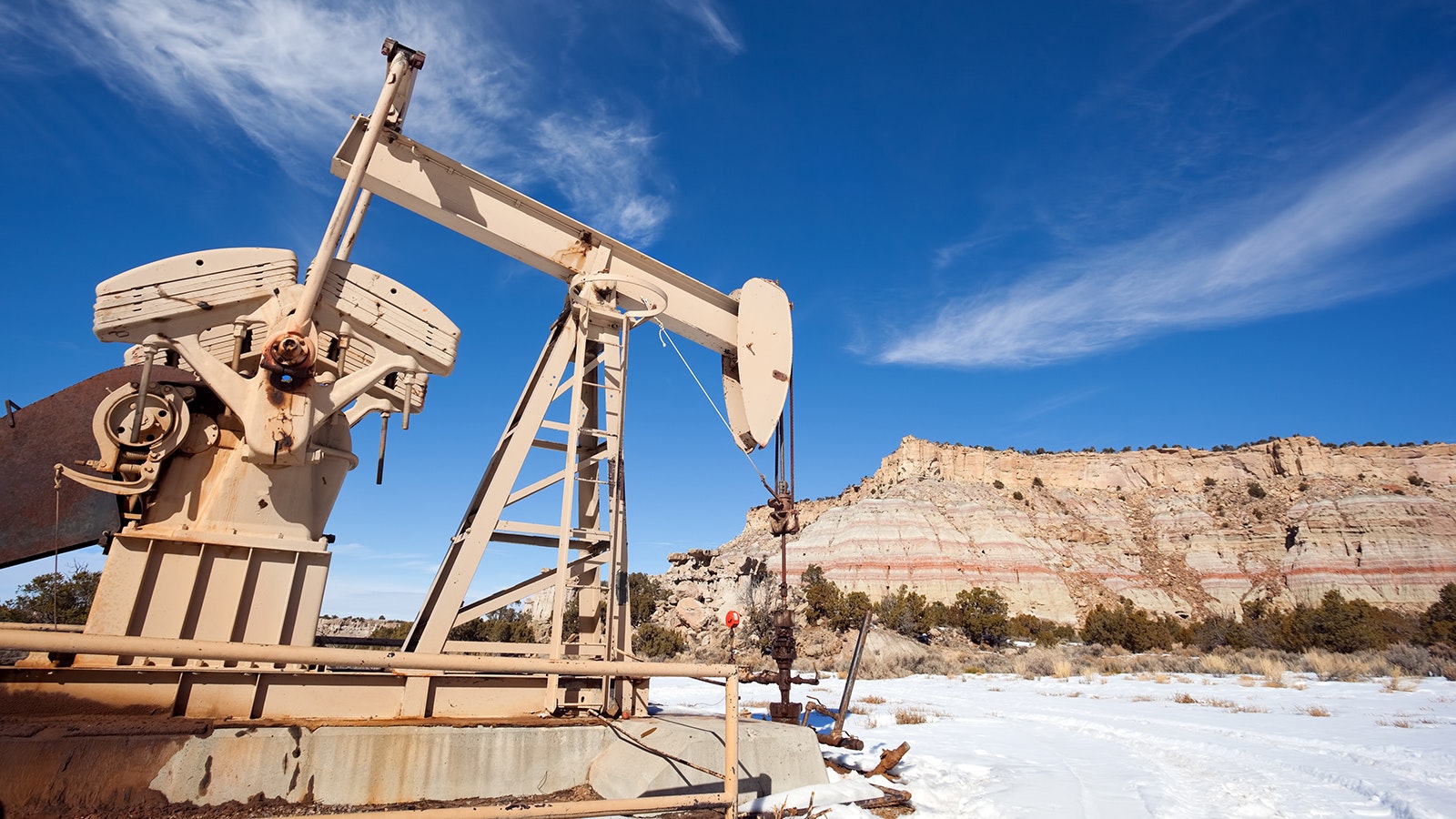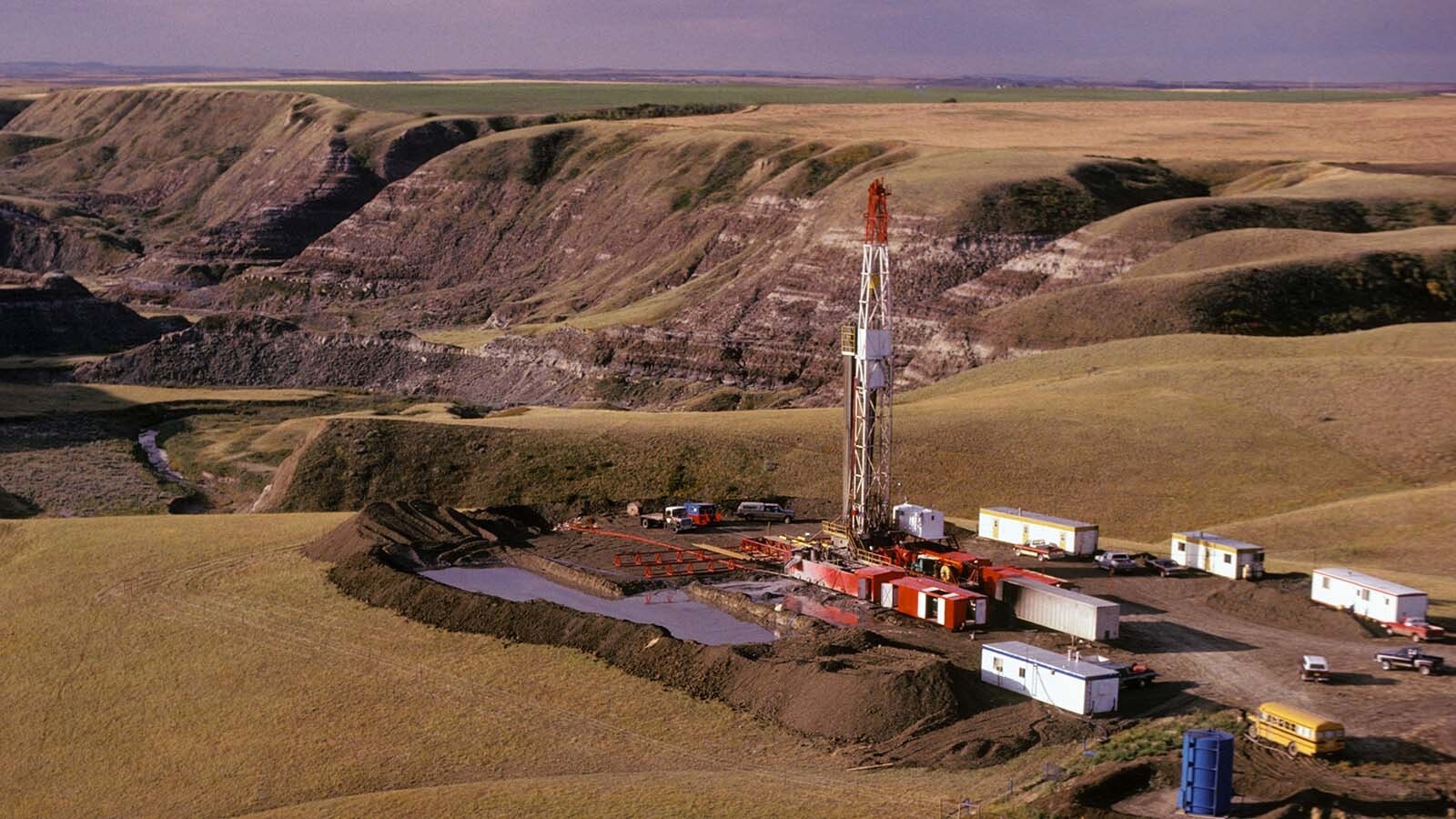A new report from the Institute for Energy Research (IER), a free-market energy and environmental policy nonprofit, concludes that restrictions on domestic oil and gas production are pushing operations to countries with lower environmental and human rights standards.
“The key message of this paper really is that oil and gas production isn’t the same everywhere. The implications for both the environment and human freedom vary, depending on where they’re produced,” Paige Lambermont, IER policy analyst and co-author of the study, told Cowboy State Daily.
Disturbing Movement
The report discusses what it calls a “disturbing movement, primarily in developed countries, that views economic growth as the enemy of environmental quality.”
Policies following this ideology seek to block production of oil and gas through lease cancellations, using the permitting process to slow or stop production and keep the industry tied up in litigation.
Last year, IER published a paper listing 125 actions the Biden administration has taken to limit oil and gas production in the United States.
Limiting domestic oil and gas production, the authors of this latest IER study argue, undermines economic development, and increased prosperity correlates with increased environmental protections.
This analysis follows an economic theory called the environmental Kuznets curve, which shows that, as societies get richer, they place a higher value on cleaner environments.
“When you have a society that’s flourishing, and you have extra resources, the desire for a clean environment is something that can be more effectively taken into consideration,” Lambermont explained.
Restrictions on domestic production, the study finds, shifts production to countries with lower environmental standards.
Cleaner Energy
Paul Ulrich, vice president of government and regulatory affairs at Jonah Energy LLC, told Cowboy State Daily that American companies like Jonah ultimately benefit from conducting operations with good environmental stewardship.
The company’s operations include Jonah Field, a major gas-producing area in Sublette County.
“Customers want clean energy,” Ulrich said. “Energy regulators want cleaner energy. So, we, as a producer, want to produce cleaner energy.”
The company is still looking into the latest federal methane reduction regulations, so Ulrich couldn’t comment on those specifically. He said there’s a balance to be had between practical matters of operations and good regulations, but Jonah is supportive of sound environmental regulation.
“In order to survive, and perhaps thrive, as a natural gas producer, we needed to very clearly demonstrate significant emission reductions,” Ulrich said.
Different Consequences
The IER study creates environmental quality scores for major petroleum-producing countries using the Environmental Performance Index (EPI) developed by Yale University.
The analysis found that for the 20 largest oil-producing countries outside the U.S., the average EPI environmental score is 39, compared to America’s score of 51.1. The scores are weighted by liquid fuels production, which is like a grading curve based on how much oil and gas the country produces.
The study also looked at natural gas production and found similar scores for both the U.S. and gas-producing countries outside the U.S.
Another component of the analysis is economic liberty.
The study compares the social freedoms of these countries to those of the United States, noting that shifts to production outside the U.S. also shifts production to countries with less economic liberty.
This is important, the study explains, because stronger property rights lead to better stewardship. People tend to take better care of what they own personally than what is owned collectively.
“A barrel of oil produced in the United States does not have the same consequences for either the environment or for human freedom as a barrel produced in Russia,” Lambermont said.
Case In Point
The study discusses oil production in Venezuela to illustrate the relationship between economic liberty, prosperity and strong environmental regulations.
Venezuela was once South America’s wealthiest nation.
In late 1999, the country moved away from a free-market economy towards income redistribution and social welfare programs.
The nation today is second to last on the Heritage Foundation’s 2022 Index of Economic Liberty, ranking just ahead of North Korea.
Venezuela sits upon one of the largest oil reserves in the world, but it’s not in the top 20 list of producers in the world today.
The nation’s poor environmental record has been document. In 2016, for example, its state-owned oil company stopped reporting oil spills entirely.
Last year, facing high energy prices, the Biden administration eased sanctions against Venezuela that allow it to produce more oil.
Starting A Discussion
At a Houston energy conference in 2019, Andrew Wheeler, EPA administrator for the Trump administration, argued that Europe would do more for the environment to purchase its natural gas from the U.S. rather than from Russia, because environmental regulations were strong in America.
It’s a position that’s been discussed for some time, and Lambermont said the goal of the paper is to contribute to that discussion.
“The direction that these policies are taking us has been damaging,” Lambermont said.





